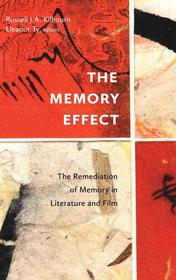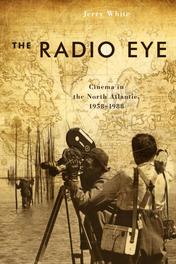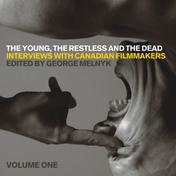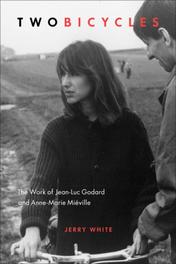History & Criticism

Excerpt from The Memory Effect: The Remediation of Memory in Literature and Film edited by Russell J. A. Kilbourn and Eleanor Ty
From the Introduction
This collection (1) came about in response to the following question: How do changing ideas of memory affect how we think about texts, whether literary, filmic, or in some other medium? By framing an approach to memory informed by post-structuralist theories of the subject, language, and representation, we assert that memory, like history, is understood to be a discursive construct. This position, which in the twenty-first century sounds outdated, remains in our view the most radical and therefore the most valuable in terms of the insight it allows into the ontology and epistemology of memory today, insofar as this is not an understanding of memory as discursive-textual construct in a second-order sense, as in classical or early modern conceptions of an “art of memory” distinct from memory as a “natural” faculty or capacity of the mind. Classical theorists such as Cicero saw memory as a rhetorical category, and artificial memory therefore as something to be learned through the mental construction of a memory palace inside one's head. This pre-modern model is predicated upon the two longest-standing metaphors of memory as storage place and as system of inscription (see, e. g. , Yates, Carruthers, Frow), by which relatively complex assemblages of information can be deposited, recollected, reordered, and reproduced at will. Centuries of cultural and technological —not to speak of cognitive and neurological—development have resulted in a world in which it is now possible to walk around with a USB key or “flash drive” in one's pocket or briefcase, containing as much information as the Library of Congress—enough data, in short, to consume several lifetimes of learning or of practical application. For most of us today this is what memory is, in a first-order sense, or rather in a sense that transcends any “natural”-technical binary: an external, prosthetic storage tool, operating on its own or as part of another machine (camera, laptop, cellphone, tablet, e-reader), entirely distinct from the “natural” human sensorium, the physically embodied mental “self,” yet already indispensible, a crucial component in what is emerging as a wholly new kind of cyber- or post-human interface, yielding never-before-possible subjectivities and modalities of identity. This, at least, is the utopian scenario; a more cynical view sees in this tendency the colonization of memory as an always already artificial technology, but where, in a symptomatically postmodern irony, the loss of the distinction between “natural” and technically enhanced memory is to be nostalgically mourned. We would not be the first to point out that for many people today the “natural” memory is employed primarily in the second-order task of storing and retrieving (or not) the knowledge of how to retrieve the mind-bogglingly vast quantities of information now available via various digital media platforms.



Excerpt from The Young, the Restless, and the Dead: Interviews with Canadian Filmmakers edited by George Melnyk
From the introduction to Chapter 7 “I like to work one-on-one” ANNE WHEELER interviewed by Peggy Thompson
She's one of Canada's defining English-language cinematic voices. During her career she's directed eight feature films, nine movies for television, and numerous documentaries, miniseries, and television episodes. Her movies for television have been nominated for a total of thirty-one Geminis and her films for a total of thirty-eight Genie Awards. As François Truffaut wrote in Hitchcock, directing films requires “multiple and often contradictory talents . .. only a mind in which the analytic and synthetic are simultaneously at work can make its way out of the maze of snares inherent in the fragmentation of the shooting, the cutting and the montage of a film. “
Wheeler trained as a mathematician, musician, and music teacher before directing her first film. When she talks about directing she uses musical analogies and notations. And when she shoots, it's with mathematical precision. At our first meeting in 1998 to discuss working together on Better Than Chocolate, producer Sharon McGowan and I arrived at Anne's office to the sound of delicate piano playing. It was Anne. When we asked her what the piece was, she said it was her morning improvisation; each day begins with one. I think that this ability to start fresh, to reinvent, is a hallmark of her work as a film artist.
Wheeler's body of work harks back to classic auteurs, directors like George Stevens, Akira Kurosawa, and Billy Wilder whose themes and styles embraced all genres: westerns, comedies, film noir, drama. Wheeler is the same: whether its the social-issue drama of Loyalties, the romantic naturalism of Bye Bye Blues, the neo-noir of television's Da Vinci's Inquest, or the romantic comedy of Better Than Chocolate, Wheeler's recurring themes of liberation and self-knowledge run through them all.
Like George Stevens, Wheeler is a director who understands the importance of landscape in relation to the psyche. Stevens's westerns Shane and Giant share with Wheeler's Alberta films the metaphor of western place. Land and sky become a tabula rasa on which deeply internalized characters (male and female) can see themselves in a new light. As did Akira Kurosawa, another director who understood westerns, Wheeler isn't afraid of epic pacing, and, like Billy Wilder, whose comedies stressed character exaggeration, Wheeler's forays into comedy (Better Than Chocolate, Suddenly Naked) prove that she too can handle an everywoman protagonist thrust into a cockeyed universe.
In the 1970s and '80s Wheeler collaborated with the National Film Board making documentaries and short dramas such as Great Grand Mother, Augusta, Happily Unmarried, Teach Me to Dance, One's a Heifer, A Change of Heart, and A War Story. The latter, narrated by Donald Sutherland, explores her fathers experiences as a doctor in a Japanese prisoner-of-war camp during World War Two. These films laid the groundwork for the films to follow.
Her first feature film, Loyalties (1986), starred Tantoo Cardinal and Susan Wooldridge and was written by Sharon Riis. Loyalties is a powerful film about a friendship between a Metis and a British woman, and deals with child abuse and how a case of abuse (the British woman's husband assaults the Metis womans daughter) propels the two women to action. This groundbreaking film moved Wheeler into the international narrative film world and won awards at film festivals in Houston, San Francisco, Toronto, Portugal, South Africa, Montreal, and the Grand Prix at the Créteil International Women's Film Festival in Paris.
Bye Bye Blues (1988) was inspired by her mother's war years as a musician in a small dance band, and established Wheeler as an auteur director. We explore the making of Bye Bye Blues in this interview. In 1990, she directed the adaptation of the classic novel The Diviners, by Margaret Laurence, for CBC Television. The novel was adapted by renowned screenwriter Linda Svendsen. “Writing is a form of divining”, Laurence has famously said, and with The Diviners Wheeler develops what is now becoming her major theme--women's struggles to discover and divine self-knowledge.
The War Between Us (1995), another film for CBC Television, explores the Japanese internment in Canada during World War Two and is again a film about the bonds between women. This film was written by screenwriter Sharon Gibbon, the granddaughter of the lead character. As with so many of Wheeler's films, real life is once again “divined” into fiction. The film garnered international awards, including the Special Jury Prize from the Houston Film Festival, the Red Cross Award for Humanity, the Critic's Choice Award at Monte Carlo, and a Cable Ace Award for Best Foreign Programming in the United States. In 1996 Wheeler wrote and produced Mother Trucker: The Diana Kilmury Story, directed by Sturla Gunnarsson. The film is a biopic about the woman who fought to change corruption within the Teamsters. That film won the Cable Ace Award in the United States for Best International Programming. In 1998 Wheeler directed the first three episodes of Da Vinci's Inquest, setting the style for the gritty hit series. Better Than Chocolate (1999), our lesbian-themed romantic comedy, premiered at the Berlin Film Festival and was a critical and commercial success. The film received wide distribution in the United States, playing in over 300 theatres. We discuss our collaboration on this film in the interview. Marine Life (2001), adapted from the linked short stories by Linda Svendsen, also explores Wheeler's primary themes of families headed by women and the discovery of self. In 2000 Wheeler directed Suddenly Naked, a romantic comedy that also premiered at Berlin and, through humour, questions what happens when artists create for fame and fortune rather than express themselves truthfully.
For the purposes of this interview I focus on two of Wheeler's feature films: Bye Bye Blues, a story rooted in her family and place of birth, and Better Than Chocolate, a film rooted in my family and place of birth. But to begin, I ask her about getting started in the film world.

Excerpt from Two Bicycles: The Work of Jean-Luc Godard and Anne-Marie Miéville by Jerry White
From the Introduction
The work of Jean-Luc Godard is both voluminous and widely celebrated. This is as it should be; he is a great filmmaker, someone who has spent a career rigorously rethinking the fundamentals of his medium (film) and its neighbouring media (television and video). Anne-Marie Miéville's work as a filmmaker seems, at first glance, to pale in comparison. She has directed several noteworthy works, and to judge from them, it might seem that she could be filed under the category “interesting Swiss filmmaker,” hardly a classification that would offer a central place in the history of postwar cinema. That would be a mistake. The greater mistake, though, and the more common one, is to conflate “the films of Godard and Miéville” with “the films of Jean-Luc Godard. “ The frequency with which that mistake is made is no doubt a result of the considerable international fame that Godard accrued during the 1960s as part of the French nouvelle vague (hereafter, the New Wave). When such fame is attached to a single name, it can become hard to see beyond that name. This sort of myopia is explicit in Andrew Sarris’s 1970 interview with Godard and Jean- Pierre Gorin, who were at that time making films together and signing them as “Groupe Dziga Vertov”; Sarris writes there how Godard “walked in with his assistant Jean-Pierre something or other” (51). Critics often seem to consider some of Godard’s very best work to be made by him and his girlfriend, Anne- Marie something or other.
Of course, this is not the case at all, as it was not the case with Gorin; one of my first tasks in this book is to lay out some of the problems that the films of “Godard and Miéville” pose for understandings of authorship in cinema. I do that, in small part, by following scholars such as Michael Witt and Catherine Grant and proposing that the clearest, most illustrative comparison point for Godard and Miéville is the work of Jean-Marie Straub and Danièle Huillet. Godard and Miéville pose similar problems in terms of their status as avant-garde artists; thus, I also lay out some of the ways in which their work is both more and less radical than it may at first appear. It is the French critic 2 Chapter 1 Serge Daney who lays out this “Godard paradox” more elegantly than any critic I know of, and his notion of the Godard paradox serves as a segue into a brief discussion of Daney’s work and its usefulness as a “way in” to Godard and Miéville’s films, videos, and television programs.
From Chapter 2: Abandonments
Quebec Godard’s interest in Quebec is surprisingly substantial. The first instance that I know of regarding his concern for Quebec cinema is in the very long interview he gave to Jacques Bontemps, Jean-Louis Comolli, Michel Delahaye, and Jean Narboni of the Cahiers du cinéma in 1967 (it was published in number 194) titled “Lutter sur deux fronts. “1 He stated there that:
“The Canadian cinema is interesting as an example. The National Film Board is an impressive film factory, more so than Hollywood today. It’s a great set-up. But what’s the pay-off? Zero. There’s nothing to see for it. The films just aren’t coming out. What Daniel Johnson ought to do is nationalize all the cinemas in Quebec. But he won’t do it. The best he’s capable of is seeing that de Gaulle gets a welcome in the metro screens. So, over there as well, cinema is subject to a special brand of imperialism, just like everywhere else. ” (Jean-Luc Godard par Jean-Luc Godard t. 1, 318 / “Struggling on Two Fronts,” 294)
This demonstrates a remarkably detailed knowledge of Quebec politics. Not only was Godard aware of de Gaulle’s 1967 visit to Montreal (where he famously shouted “Vive le Québec libre! “ as he addressed a crowd from the balcony of Montreal city hall), but he also seems to know about Daniel Johnson Sr. ,2 at that time the Premier of Quebec as a member of the Union Nationale, a more-or-less nationalist party. Johnson famously chafed against Ottawa and suggested that Quebec should consider separation if it could not improve its position within the Canadian confederation; he was Premier during de Gaulle’s 1967 visit to Quebec. His party had a generally conservative social policy and a generally classical-liberal approach to economic policy (hence the reluctance to nationalize Quebec’s cinemas). And, of course, Godard is keenly aware of and impressed by the work of the National Film Board of Canada (NFB), and, more startlingly, he was fully aware of the fact that very few Canadians actually get to see very many of its extraordinary films.


